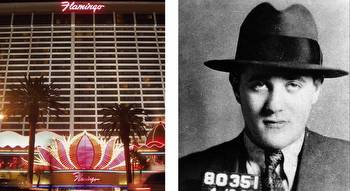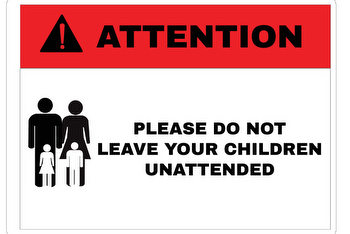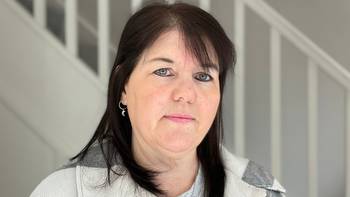Talking Jewish 'holiness' above a Las Vegas casino

Parashat Kedoshim, which we read last week, always brings me back to a Shabbat in a smoky casino in Las Vegas.
I had just started working for Hadassah, the Women’s Zionist Organization of America in Jerusalem. What would be known as the Second Intifada hadn’t yet begun. As part of my orientation, I was invited to attend a conference in Las Vegas of the Western American states, from Texas to Washington. I would only have to present a short update on Israel and observe the rest of the program.
At the hotel, women were checking in, having arrived by car, bus and plane. Hadassah had engaged a celebrated woman radio/TV commentator and college professor as the scholar-in-residence. On Thursday night, at the opening session, the guest speaker lectured about the importance of tradition. Her second presentation was announced to take place on Saturday morning.
I got the weirdest sensation that I would be giving that speech instead of her.
Then, on Friday morning the conference chairperson stood before the assembled group and announced that the scholar-in-residence had left suddenly because of an illness in her family. Members sighed with empathy and also disappointment: They’d come a long way to hear this speaker, and the conference had just started.

I felt queasy, as I remembered my premonition.
When everyone had dispersed for workshops, I forced myself to approach the grim-faced conference chairperson. I took a deep breath and, in one uninterruptible sentence, expressed my regret that someone was unwell in the speaker’s family, and – feeling more foolish with each word – volunteered to fill in for her.
The chairperson’s eyes shifted downward to my name badge, unable to conceal her astonishment at my chutzpah. “So nice of you to offer,” she said. The smile didn’t reach her eyes.
Okay, I felt embarrassed, but at least I couldn’t kick myself later for not acting on my instincts.
The hotel wasn’t one of the fancy famous ones. Getting to the meeting rooms required walking through a smoke-filled casino. There was even a wedding chapel with couples lining up for Vegas weddings.
I gave my presentation on Friday and then, as Shabbat was approaching, I went to buy some American snacks at a supermarket. I made it back with just enough time to shower and dress for Shabbat.
The light on my hotel phone was pulsating like the Las Vegas strobes.
I listened to the message. Out of options, the chair had accepted my rash offer to speak.
I didn’t have a clue what I should talk about. I hadn’t brought source books or notes. All I had available was the hotel Bible in the nightstand drawer. The thought of coming into a hall above the Vegas casino, thumping the hotel Bible in my hand, made me laugh out loud.
At least I knew what the week’s portion was: Kedoshim from the Book of Leviticus.
But was I really going to talk about “holiness” above a casino?
As I didn’t have time before Shabbat to write down anything, I spent a sleepless night thinking about what to do.
I realized I could only tell stories.
The next morning, the chairperson announced to the assembled group that I’d be filling in for the scholar. Five hundred pairs of eyes widened with astonishment.
I STARTED talking about two women I’d flown to Wales to interview. Helene Jones and Denise Martin were friends and co-workers – both nurses – living a conventional life in Wales. In their church, they’d heard about kids who were actually caged in an orphanage in Belarus in the old Soviet Union. Helen and Denise had been planning to go on a sun-drenched vacation after a rainy Wales winter, but instead they bought tickets to Belarus.
They had seen plenty of suffering in the coal mining districts where they lived, but nothing compared to that orphanage. The stench of decaying human excrement, vermin and dirty bedclothes made them choke. Children in straitjackets and cages howled. On the soiled floor lay writhing, undernourished children.
The nurses had packed a few containers of high-calorie drink used for weight maintenance. At the sight of the food, children crawled toward them from every direction, reaching out with gnarled arms. The two women sat on the floor and poured the liquid into the hungry mouths. If some drink dribbled down a child’s chin, another would lunge forward to lick it off.
In the midst of all this horror, they saw a misshapen child – a five-year-old boy they thought – bumping along the floor with a bedpan, singing a song about a doggie. The child was bringing the bedpan for a youngster who couldn’t move.
“What could possibly have motivated this suffering, lonely human being to be so generous and kind?” asked Denise. To their astonishment, Helena and Denise learned that the tiny, identity-less creature was not a boy, not five, but an 11-year-old girl named Annya.
Call it a snap decision or a moment of clarity, but Helena and Denise, both single and working full time, instantly knew what they had to do. They applied to bring Annya back to Wales. After overcoming numerous bureaucratic challenges, they succeeded in doing so. They addressed Annya’s many medical problems, and in the process somehow discovered that the little girl was Jewish. The next part of the story recounted how these two Christian women contacted the local Orthodox rabbi and connected Annya to her Jewish identity.
MY NEXT story was closer to home. An American kibbutz volunteer had mysteriously arrived at our home for Shabbat. Schmoozing over a cup of tea, he told us his story. Depressed over a failed romance, he’d gone to his American university’s student travel office looking for a trip abroad. The person in front of him in line recommended Israel. Someone – we could never remember who – asked us to invite him for Shabbat. He had happily accepted, it turned out, because he wanted to visit Bethlehem on Christmas, and it was closer to Jerusalem than his kibbutz.
As we continued to talk, we discovered to our shock that he was related to one of Israel’s most important rabbis. A few phone calls after Shabbat, and he was headed to meet his family in Bnei Brak instead of Bethlehem.
Members of the audience had wonderful stories they wanted to tell, too. More than two decades later, those who were there still recall that Shabbat of sharing the unexpected and inspirational events that had happened to them or someone they knew.
And all this in Vegas! What were the odds? ■
The writer is the Israel director of public relations at Hadassah, the Women’s Zionist Organization of America. Her latest book is A Daughter of Many Mothers. She spent this Parshat Kedoshim in Brazil telling stories. Have a story to share? Please be in touch at bsofer@gmail.com.




































